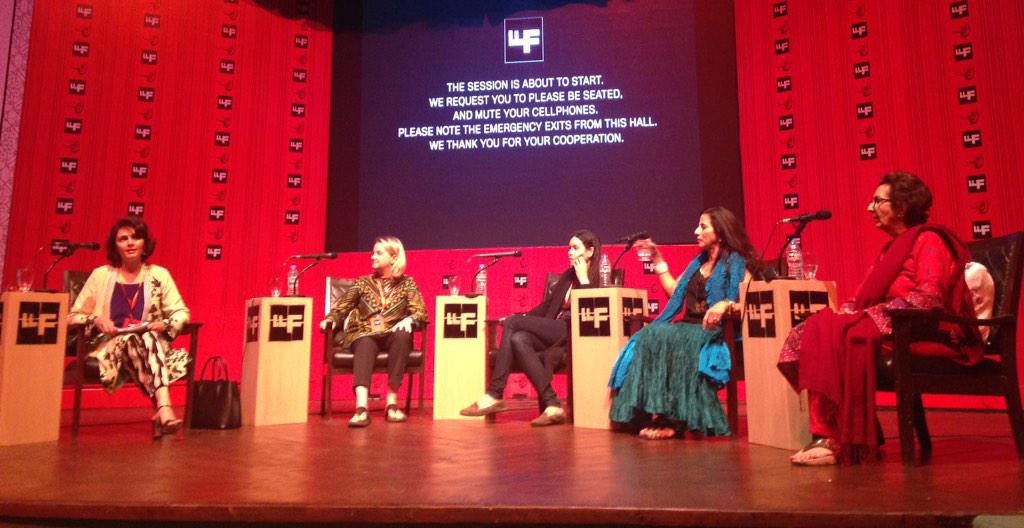
Reluctance to accept the title of gender equality was the highlight of this LLF session

The concluding session of Lahore Literary Festival 2015, aptly titled ‘Fifty Shades of Feminism’ in response to the testosterone-packed US box office hit, was nothing short of a disappointment. Expected to be a thought-provoking discussion on women as objects and guarantors of male pleasure, the LLF session failed to honour the women rights movements in South Asia and in the rest of the world.
Even though the session did not feature women rights activists from the region and chose to go with the bold and glamorous Indian gossip columnist Shobha De, it could have fared better.
With the worldwide release of Fifty Shades of Grey to big cinema audiences, it would have been refreshing to hear outspoken women rubbish talk the of sexual female empowerment and lay bare the sadist misogyny percolating below.
Not until the end of the session did the all-female panel address the film and its damaging portrayal of a woman submitting to the inhumane whims of a rich man. With a few condemnations of the film here and there, the panel refused to take the opportunity to place Fifty Shades of Grey in the wider context of mainstream media and violence against the female body. Advertisements for cars, deodorants, cigarettes, and shave creams, please?
Defending Bollywood item songs with highly offensive lyrics, Shobha De dismissed the gendered dynamics of power by equating the scantily clad Indian actress Sunny Leone to a shirtless Shahrukh Khan. Clearly, the equation is problematic given the male sense of entitlement and decades upon decades of patriarchy that allow men greater license in devouring women’s bodies with their eyes.
In jam-packed cinemas in New Delhi and Lahore, how many men would accept their female relations sleazily expressing their approval of SRK’s trimmed body? Can women make vulgar comments without risking a disapproving male glare?
For all her talk of female empowerment in her writings, Shobha De could have shed light on wage inequality in Bollywood and the responsibility of the industry towards its more than two billion subscribers. The rest of the underwhelming and to varying degrees apologetic panellists including the Pakistani novelist Muneeza Shamsie withdrew into the shadows, as Shobha spoke at length and displayed her ignorance of gender relations and the way patriarchy works in this part of the world.
Also read: Literature of resistance
The famous Indian columnist went to the extent of explaining why she did not identify herself as a ‘feminist’ and believes in the mantra of women empowering themselves irrespective of male oppression and their circumstances. This reluctance to accept the radical title of gender equality supporter was the highlight of the LLF session ‘Fifty Shades of Feminism’.
The refusal to identify with feminism is surprising given that Shobha De and so many women in her generation have benefited from the women’s rights movements that won them rights to vote, hold property, and other important social freedoms.
But a larger problem is that of the patriarchal imaginary internalised by De and other women that makes the belief in gender equality a ‘radical’ notion that amounts to hating all men. If men directly or indirectly continue to shape women’s identities and preferences, what are we to achieve? I am a feminist because I believe both sexes deserve the same rights and freedoms in all aspects of life. It’s that easy, Shobha De.